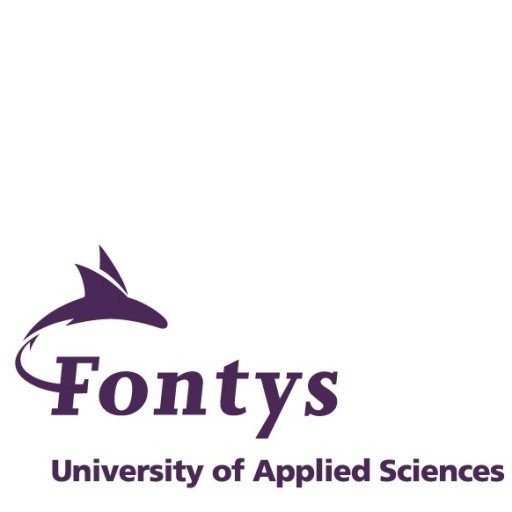Photos of university / #hochschule_trier
The International Material Flow Management (IMAT) Master’s program at Trier University of Applied Sciences is a globally-oriented, interdisciplinary course designed to equip students with the skills and knowledge necessary to address the pressing challenges of resource efficiency, sustainable waste management, and environmental protection. This program uniquely combines technical, economic, and management disciplines to foster a comprehensive understanding of material flow analysis, circular economy, and sustainable development practices.
Students enrolled in IMAT will explore the principles of environmental management systems, learn about innovations in recycling and waste processing technologies, and develop strategies for sustainable material use across various industries. The curriculum emphasizes practical applications, integrating case studies, industry projects, and internships to ensure students gain real-world experience. The program aims to produce graduates capable of designing and implementing effective resource management solutions that balance economic feasibility with environmental integrity.
The program's international focus prepares students for careers in diverse geographical and cultural contexts, making it particularly attractive to those interested in global environmental issues. Courses are delivered in English, ensuring accessibility for international students and fostering lively exchange of ideas among participants from different backgrounds. Students will also have opportunities to participate in seminars, workshops, and conferences related to material flow management and sustainability.
Graduates of IMAT are well-equipped to work in sectors such as environmental consulting, waste management, manufacturing industries, and governmental agencies. They will have the competencies to evaluate material cycles, optimize resource use, and promote sustainable practices in both private and public organizations. The program's strong emphasis on innovation and practical skills aims to prepare students for leadership roles in the transition towards a more sustainable and circular economy.
Overall, the International Material Flow Management Master’s program offers a comprehensive, forward-looking education that combines scientific knowledge with practical skills, aimed at fostering sustainable development and environmental responsibility in a global context.
Educational organisation
Your modules at a glance for the first semester (first winter semester):Module 1: Global Environmental Challenges and Zero Emission Policy Strategies
Module 2: Regional Material Flow Management
Module 3: Material Flow Management, Project Management and Financing
Module 4: Economic Aspects of Sustainable Energy Systems
Module 5: Industrial Material Flow Management
Module 9 (Elective): This module is designed to allow students to deepen their knowledge in various specialised fields. This supports the overall context of developing and executing Material Flow Management (MFM), Zero Emission (ZE), and Circular Economy (CE) projects.
Your modules at a glance for the second semester (first summer semester):
Module 6: Industrial Ecology and Eco-Industrial Parks
Module 7: Economic Aspects of Sustainable Resource Management
Module 8: Economic Aspects of Sustainable Water Management
Module 10 (Elective): see Module 9
Your module for the third semester (second winter semester):
Module 11: Internship/study semester abroad
Your module for the fourth semester (second summer semester):
Module 12: Master's thesis
Study abroad unit(s)
Instead of a practical internship (third semester) at a company, research institute, and/or (non-) governmental entity, students can alternatively opt for an international study semester abroad, preferably at IMAT partner universities. Students will further develop their intercultural skills and deepen their theoretical knowledge by attending courses at the partner university.Internships
According to the curriculum of the Master's programme "IMAT MSc" at Trier University of Applied Sciences, Environmental Campus Birkenfeld, an internship of at least 16 weeks (third semester) is obligatory to fulfil the requirements for the Master of Science degree.Forms of assessment
Each module will be evaluated separately by means of a final exam, e.g., presentations, written/oral exams, or papers.Course objectives
In an ever more globalised environment, where environmental problems become increasingly obvious and urgent, interdisciplinary education focusing on a view of cause-and-effect relationships and their consequences is one of the most important elements of our IMAT programme. This gives our students the tools they need to face the scenarios of progressing environmental degradation. This requires leaders who are able to provide multi-disciplinary know-how as well as integrate different knowledge and tasks. The IMAT programme prepares students for a successful and future-oriented profession. Application areas and prospective careers may include:- Globally operating industrial companies in different areas: managers, production managers, purchasers, sales and project engineers, engineering strategic professionals, environmental manager, sustainability manager
- Project manager for energy and utility companies as well as for energy providers and waste management companies
- Business consulting, senior consultants/international consultants, and project developers
- Smaller companies offering environmental services or products
- Freelancers, eco-entrepreneurs, business start ups with own business ideas
- Researcher in SSM, research associate, PhD
Language requirements
The IMAT programme will only consider applicants with a minimum TOEFL paper-based score of 550 points or equivalent (computer-based TOEFL 213; next generation, Internet-based TOEFL 79; IELTS minimum 6.0; or TOEIC minimum 750 points). If none of these tests are available, the IMAT Management Office offers an internal test to confirm English language skills.Academic requirements
Bachelor degree or equivalent (180 ECTS credit points)The holistic approach of IMAT MSc is explicitly intended for the admission of candidates with heterogeneous knowledge. In addition to students with a "technically oriented" business Bachelor's degree, students from different fields such as legal, environmental, natural and social sciences may also be admitted, as long as they have engaged in economic and ecological areas in their initial training or professional careers.
Applicants who do not fulfil this requirement may be accepted in special cases if they have working experience as a researcher or instructor at an academic institution.








